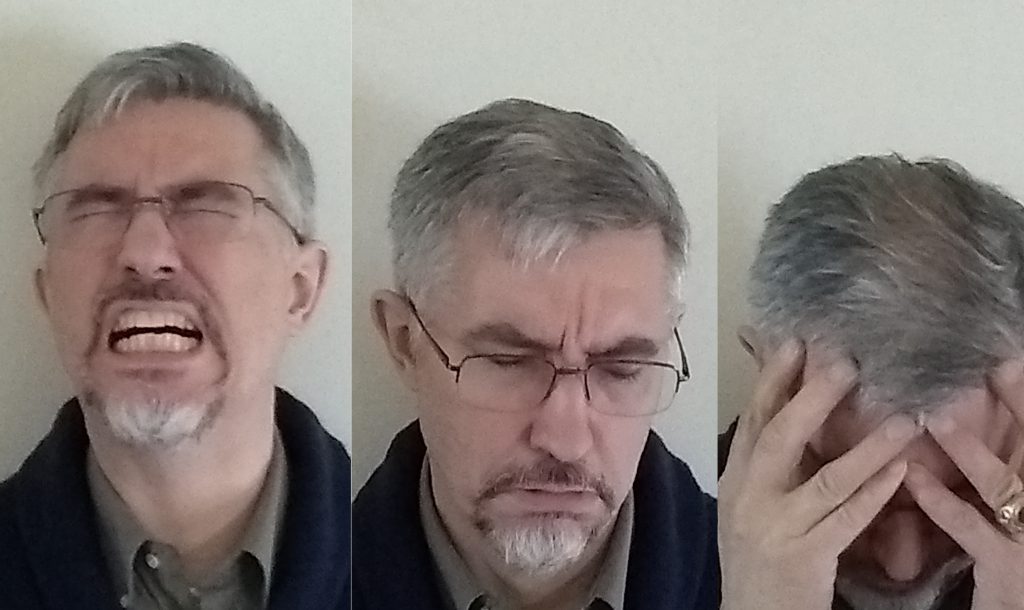You’ve heard the phrase “suffering for your art,” and you know the stereotype of the writer who’s deeply disturbed and probably insane. Let’s reason this out together.
First, I’d like to define some terms. Suffering means simply to experience something undesirable, some hardship. Given that definition of suffering, it’s something no human escapes. We all have undesirable experiences. Suffering is universal and inevitable.
An insane person is one who does not exhibit normal perception, behavior, or social interaction. Imagine lining up all people in order from the most sane to the most insane. Even psychologists would have a difficult time marking the boundary separating the sane from the insane, though most would agree about those at the extreme ends of the line.
 For my purposes here, let’s consider insanity a rare condition. Let’s use the term as a psychologist might, and not like the hyperbole we use when seeing someone do something remarkable: “He’s insane!”
For my purposes here, let’s consider insanity a rare condition. Let’s use the term as a psychologist might, and not like the hyperbole we use when seeing someone do something remarkable: “He’s insane!”
In this post, Wency Leung cites a study showing that creative people are more likely to receive treatment for mental illnesses, and likely also are related to people with mental disorders. The study specifically found authors to have high likelihoods of anxiety, depression, schizophrenia, and substance abuse, and to be more prone to suicide than the general population.
Michelle Roberts cites the same study, but her post details a similarity between the brain scans of creative people and those of schizophrenics. Both seem to have fewer mental filters, thus allowing a greater capacity for seeing connections between unlike things. Those two groups make associations and links not made by the general population.
Exploring the study’s implications for writers, Kimberley Turner warns against glamorizing mental illness, saying it can bring on depressions that are far from desirable. Given the higher incidence of mental illness with writers, she asks if writing causes the illness and its associated unhappiness, or if the mentally ill are more likely to take up writing. She concludes that depression is not a necessary condition to be a great writer, but that a writer must have endured some suffering to portray believable characters contending with conflict.
This post from Kevin T. Johns focuses on the suffering writer, without delving into whether that suffering results from, or causes, insanity. He contends writers must suffer for their art. However, they need not seek out suffering; life supplies enough suffering by itself. Writers differ from most people in that they use suffering. They don’t shy away from the hurt and pain—they write down every detail. They force characters to suffer, thus producing engaging literature.
Considering that question of whether suffering sparks people to write, or writing itself causes suffering, Mark McGuinness distinguishes between two kinds of suffering. Suffering from life, he contends, is different from suffering from your art. We all suffer the pain of living, so you must face and overcome it. Writers use it by learning from it and writing it down. However, he spares no sympathy for writers who suffer from their writing. He finds that self-pitying and unhelpful.
As for me, I agree life provides enough suffering for any writer to use. However, I recommend you not allow your writing to cause you undue suffering, let alone to drive you insane. Your readers await your next quality story, and you can’t deliver if you’re sliding into depression and madness.
Life throws bad stuff at all of us, but we get to choose how to respond. I’m in favor of remaining as optimistic as you can. That’s the best advice available from your fellow suffering writer—
Poseidon’s Scribe

Thanks for the shout out, Steven. I appreciate my thoughts being included in this overview of an extremely important topic for writers, artists, and creatives. And I whole heartedly agree with your conclusion. Cheers!
Thank you for visiting my site, Kevin. Your blog post was one of the main inspirations for me to write my own post. It is a vital topic, but also a touchy one. Best of luck to you.